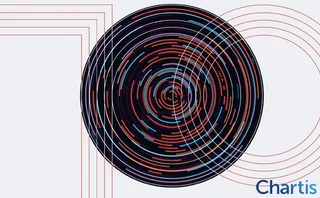
Bank of Ireland opts for Integral STP over client e-trading
Bank of Ireland has taken Integral’s AutoDealer product to aid straight-through processing, the Californian software firm said earlier this week. But, said an official at Bank of Ireland in Dublin, the bank has no immediate plans to use the system to offer online FX trading to its customers.
Integral’s solution will enable STP for a number of channels, promote price consistency and allow for lower operational risks and costs, he added. It will also provide the infrastructure to deploy client trading over the Web should the bank decide to do so in the future.
Bank of Ireland, which is currently still in the implementation phase, will use the product to manage its internal and branch-dealing network globally. Once live, Integral will provide a central source for foreign exchange rates distribution at the bank’s trading floor in Dublin, with connections to appropriate Bank of Ireland systems to provide instant rate responses to its global branch network.
Users will be able to log in over a browser and submit trade requests over the system and get them electronically priced, executed and fed into their core risk systems, said Harpal Sandhu, president and chief executive officer of Integral in Mountain View, California.
“Bank of Ireland is quite progressive in its understanding that most of the positive effect of technology is in the cost-savings of streamlining their internal operation,” he told RiskNews’ sister publication FX Week. “It has thousands of branches and multiple channels that it distributes products through, and multiple groups within the bank that distribute FX products - all of them call the FX desk through one means or another to get prices from a trader who gives them out largely manually – this is labour-intensive, costly and prone to error because it doesn’t automatically feed the risk systems.
Although the system has been built for foreign exchange, it could be extended for new products, such as money markets in the future, said Sandhu.
Bank of Ireland currently provides liquidity to the Currenex multi-bank FX portal by inputting prices manually.
UFJ Holdings is the only other announced AutoDealer client, but Integral counts 37 banks on its wider client list, including CitiFX, Deutsche Bank and ABN Amro.
Only users who have a paid subscription or are part of a corporate subscription are able to print or copy content.
To access these options, along with all other subscription benefits, please contact info@risk.net or view our subscription options here: http://subscriptions.risk.net/subscribe
You are currently unable to print this content. Please contact info@risk.net to find out more.
You are currently unable to copy this content. Please contact info@risk.net to find out more.
Copyright Infopro Digital Limited. All rights reserved.
As outlined in our terms and conditions, https://www.infopro-digital.com/terms-and-conditions/subscriptions/ (point 2.4), printing is limited to a single copy.
If you would like to purchase additional rights please email info@risk.net
Copyright Infopro Digital Limited. All rights reserved.
You may share this content using our article tools. As outlined in our terms and conditions, https://www.infopro-digital.com/terms-and-conditions/subscriptions/ (clause 2.4), an Authorised User may only make one copy of the materials for their own personal use. You must also comply with the restrictions in clause 2.5.
If you would like to purchase additional rights please email info@risk.net
More on Technology
What is driving the ALM resurgence? Key differentiators and core analytics
The drivers and characteristics of a modern ALM framework or platform
Are EU banks buying cloud from Lidl’s middle aisle?
As European banks seek to diversify from US cloud hyperscalers, a supermarket group is becoming an unlikely new supplier
Inside the company that helped build China’s equity options market
Fintech firm Bachelier Technology on the challenges of creating a trading platform for China’s unique OTC derivatives market
AI ‘lab’ or no, banks triangulate towards a common approach
Survey shows split between firms with and without centralised R&D. In practice, many pursue hybrid path
Everything, everywhere: 15 AI use cases in play, all at once
Research is top AI use case, best execution bottom; no use is universal, and none shunned, says survey
FX options: rising activity puts post-trade in focus
A surge in electronic FX options trading is among the factors fuelling demand for efficiencies across the entire trade lifecycle
Dismantling the zeal and the hype: the real GenAI use cases in risk management
Chartis explores the advantages and drawbacks of GenAI applications in risk management – firmly within the well-established and continuously evolving AI landscape
Chartis RiskTech100® 2024
The latest iteration of the Chartis RiskTech100®, a comprehensive independent study of the world’s major players in risk and compliance technology, is acknowledged as the go-to for clear, accurate analysis of the risk technology marketplace. With its…







